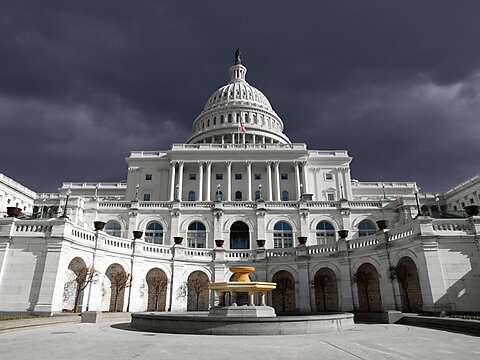Nicholas Anthony
Last week I wrote that if Congress truly cares about the Constitution, it should step in and reform the sweeping financial surveillance that is now the norm. Unfortunately, Representative Sean Casten (D‑IL) answered that call by doubling down and attempting to further restrict financial privacy in the United States with the introduction of the “Blockchain Integrity Act.”
In short, the Blockchain Integrity Act would first establish a two‐year moratorium that prohibits financial institutions from going anywhere near cryptocurrency that has been routed through a mixer (a page out of Senator Elizabeth Warren’s (D‑MA) playbook). With that two‐year moratorium in place, the Blockchain Integrity Act would then require the Department of the Treasury to study how people use mixers and other privacy‐enhancing technology.
While the bill may be better than an outright ban, it’s not much better. Let’s consider the two provisions of the bill more to understand why.
A Two‐Year Prohibition for Banks and Other Financial Institutions
As far as the prohibition is concerned, it would be illegal for financial institutions to “handle, use, or transact” cryptocurrency that has been routed through a mixer in the past or is routed directly (by a bank) to a mixer in the future.
Each violation carries up to a $100,000 penalty. Yet what’s perhaps more concerning is the ambiguity regarding past transactions. For example, the second condition is somewhat clear in that a bank is not allowed to send cryptocurrency “directly” to a mixer. This language suggests that a bank is no longer liable if a customer withdraws funds and then sends it to a mixer in a separate transaction at some later point. Yet the language describing previous transactions seems to suggest that a cryptocurrency must be blacklisted if it goes through a mixer at any time in the past.
This requirement is deeply concerning because it means the list of prohibited cryptocurrencies would only continue to increase so long as people continue to use mixers. Yet it is even more concerning for cryptocurrencies like Bitcoin, where there is also a finite supply. In other words, if people continue to use mixers for Bitcoin, then financial institutions could effectively become prohibited from touching Bitcoin at all once all 21 million bitcoins are run through mixers.
It likely wouldn’t take such an extreme scenario. Once some critical amount is reached (e.g., 50 percent of all bitcoins), it’s likely that banks would say the risk is too high and shut down operations. And that critical amount may not be too far away given that estimates suggest 1.6 million bitcoins were sent through the mixer known as Bitcoin Fog. That alone accounts for 7.6 percent of all bitcoins that will ever exist.
A Request to Find Out What Privacy Is
The second half of the legislation—the request for a study—is less concerning if it’s considered alone and without the surrounding context. The request seeks information regarding different types of privacy‐enhancing technology, illicit and legitimate use history, and an analysis of what the government’s role might be here (among other things). Those are all reasonable inquiries.
Again, without additional context, it’s an encouraging sign that Representative Casten is interested in learning more about how this technology is used for both better and worse. Yet what isn’t encouraging is that Representative Casten introduced the bill saying that “until we’ve studied [privacy enhancing technologies like mixers] and have a good audit trail, the presumption should be that these are money laundering channels.” So, without reservation, the stated position is that the presumption should be guilty until proven innocent.
If it were not for this statement and the stance that privacy should be banned until the government understands the technology, then the study would be welcome. But there is little getting around the reality that the bill effectively admits a lack of understanding while simultaneously calling for what it doesn’t understand to be prohibited.
Conclusion
As I cautioned last week, policymakers should rethink how financial privacy is treated. Americans would be less likely to seek out privacy tools if companies were not required to collect all of their information just to open an account. Rather than double down on decades‐old surveillance, it’s time to rethink and reform how the system works.

